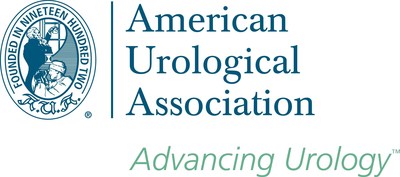Attention: Restrictions on use of AUA, AUAER, and UCF content in third party applications, including artificial intelligence technologies, such as large language models and generative AI.
You are prohibited from using or uploading content you accessed through this website into external applications, bots, software, or websites, including those using artificial intelligence technologies and infrastructure, including deep learning, machine learning and large language models and generative AI.
Study Demonstrates Effectiveness of Topical 4% Benzocaine Wipes to Improve Symptoms of Premature Ejaculation
BOSTON, May 13, 2017 /PRNewswire-USNewswire/ -- A new study being presented at the 112th Annual Scientific Meeting of the American Urological Association (AUA) shows topical 4% benzocaine wipes improved the physical and psychological symptoms of premature ejaculation based on a double-blind randomized controlled trial. The study will be presented to the media during a special press conference on Saturday May 13, 2017 at 11:30 a.m. EST in the Boston Convention and Exhibition Center. This session will be moderated by AUA spokesperson, Tobias S. Köhler, MD, MPH, FACS, associate professor and residency program director at the Southern Illinois University School of Medicine.

Premature ejaculation is the most common form of male sexual dysfunction affecting roughly 1 in 3 men between the ages of 18 to 59 years old. Currently, in the United States, pharmacological treatment therapies for premature ejaculation are administered as a cream or spray. Treating premature ejaculation with local anesthetic therapies has been restricted due to a lack of efficacy in previous studies.
Study Details
Publication Number: PD69-02
Double-Blind, Randomized Controlled Trial of Topical 4% Benzocaine Wipes for Management of Premature Ejaculation: Interim
An analysis was conducted on 21 adult men in a heterosexual, monogamous relationship with premature ejaculation. Premature ejaculation was defined by self-reported poor control over ejaculation, personal distress related to ejaculation, and an average intravaginal ejaculatory latency time (IELT) at, or below, two minutes. The men were randomized with 15 undergoing the treatment and 6 receiving the placebo.
Results showed:
- After two months, men undergoing the treatment had significant improvement in IELT than men on placebo.
- A greater proportion of men in the treatment group achieved IELT of at least two minutes vs. men on placebo.
- Compared to placebo, men in the treatment group reported greater improvement in distress relating to intercourse, control of ejaculation and satisfaction with sexual intercourse over the study period.
"This study is encouraging in demonstrating a new and innovative way to reduce the symptoms of premature ejaculation," said Dr. Köhler. "Premature ejaculation can cause a variety of issues related to negative feelings and emotions that can lead to problems with sexual relationships. This data shows topical 4% benzocaine wipes is a promising therapy to treat the most common form of sexual dysfunction among men."
NOTE TO REPORTERS: Experts are available to discuss this study outside normal briefing times. To arrange an interview with an expert, please contact the AUA Communications Office at 410-689-3932 or e-mail cfrey@AUAnet.org.
About the American Urological Association: The 112th Annual Meeting of the American Urological Association takes place May 12 – 16 at the Boston Convention and Exhibition Center in Boston, MA.
Founded in 1902 and headquartered near Baltimore, Maryland, the American Urological Association is a leading advocate for the specialty of urology, and has more than 21,000 members throughout the world. The AUA is a premier urologic association, providing invaluable support to the urologic community as it pursues its mission of fostering the highest standards of urologic care through education, research and the formulation of health policy.
Contact:
Christine Frey, AUA
443-909-0839, cfrey@AUAnet.org
SOURCE American Urological Association
